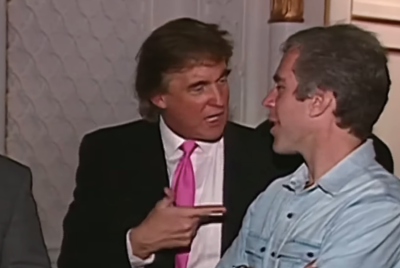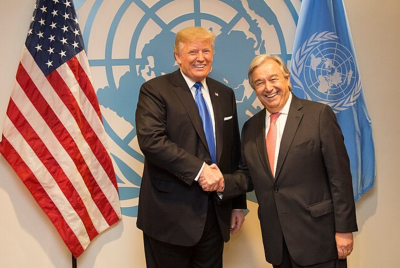British charitable organisation comes under fire for issuing bizarre 'inclusive' language guide to staff
Oxfam claimed that the guide helped staff address a diverse range of people

Oxfam has issued a bizarre new guidebook warning employees against using a string of potentially "offensive" terms.
The 92-page document was previously only circulated internally before being published online earlier this week. It features chapters on topics like race, power and decolonisation, gender justice, sexual diversity and women's rights, disability, and more.
The guide also included trigger warnings for words and phrases that can be considered "discriminatory" or those which has been historically used to oppress certain groups or people.
Following the publication of its Inclusive Language Guide, the charity, which aims to combat global poverty, warned staff to "avoid assuming the adoption of gendered roles by transgender parents."
The staff were urged to avoid terms like "mother" and "father" and use "parent" instead. The staff were also warned that using phrases like "people who become pregnant" was preferable over "expectant mothers."
"If trans parents have a preferred specified gender role, such as 'mother' or 'father', this should be respected. If unsure, it is more inclusive to use 'parent'," the charity said.
Meanwhile, the word "people" should be used cautiously, according to the guide, as it "is often misunderstood as only referring to men".
According to the charity guide, words like "headquarters", "local" and even "people" should be avoided as they have colonial implications, which reinforces "hierarchical power issues and a top-down approach."
The guide added that words like "youth" and "the elderly" were also advised to be avoided to allow people to remain dignified.
"Most people will find this particular use of valuable time and resources by Oxfam totally bizarre. It would do them well to remember the old adage that actions speak louder than words," said Robert Buckland, the Conservative former justice secretary.
However, Oxfam stood by its guide, claiming that it helped staff address a diverse range of people while maintaining that the suggestions were not mandatory.
According to a report, the book begins with an apology to readers for being written in and about the English language.
"We recognise that this guide has its origin in English, the language of a colonising nation," the introduction stated. "We acknowledge the Anglo-supremacy of the sector as part of its coloniality."
It further read that the goal of the guide is to support people who work and communicate in the English language as part of the "colonial legacy." The charity added that it recognises the dominance of English as one of the key issues that needs to be addressed in order to decolonise the way people work and shift power.
In a statement released by Oxfam, it said that this guide is not prescriptive but can help authors communicate to a diverse range of people they work with in a respectful way. The charity group also added that they were proud of using "inclusive language" and won't succeed in "tackling poverty by excluding marginalised groups."
The 92-page guide also mentioned that staff should avoid saying they "stand with" people they support as it could be considered ableist and alienate"people unable to stand."
Following this, the charity came under criticism for its guide, with many observers telling Oxfam to focus on their initial mission, which is to alleviate global poverty and starvation.
Maya Forstater, the founder of pressure group Sex Matters, accused Oxfam of abolishing the word mother. She questioned Oxfam by asking how "ignoring and denigrating the world's mothers" is considered good for development.
"It's as though Oxfam are trying to take the word 'woman' out of the dictionary – it's nonsense," said Nigel Mills, Tory MP for Amber Valley.
"Oxfam themselves say, by way of announcing their new guide, that words matter. It seems that what they mean is optics are more important than clarity," said Lee Monks, of the Plain English Campaign.
Toby Young, a member of the Free Speech Union said it would be more sensible of Oxfam to focus on its core mission instead. He added that it was "hard to take all this woke virtue-signalling seriously."
© Copyright IBTimes 2025. All rights reserved.





















